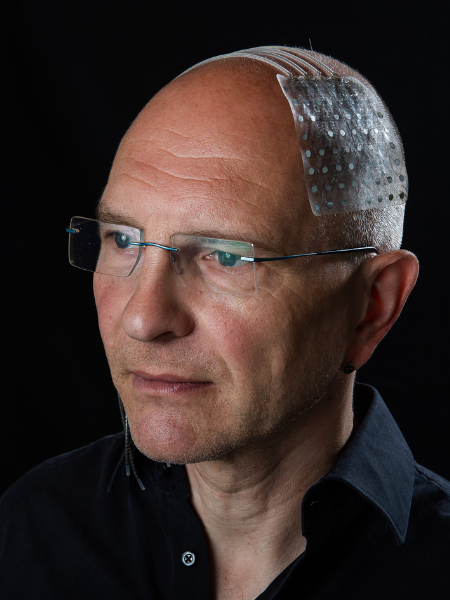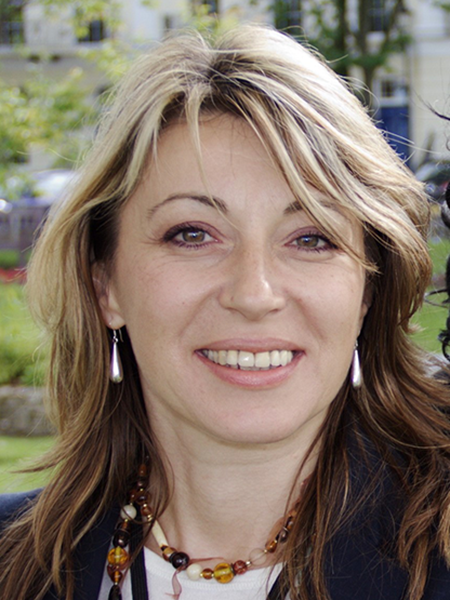Meet Our Advisory and Impact Board
The TechEthos’ Advisory and Impact Board is essential to help us maximise the quality and impact of the work we do in the project. Board Members support the project by:
Playing an active role in our activities, especially by helping us guarantee the highest scientific standards
Expanding our knowledge base with insights from their domains of activity
Acting as our ambassadors and door openers so that our results are used widely at the national and international levels and in different fields
Board Members

Peta Ashworth
Curtin Institute for Energy Transition, Curtin University
Perth, Australia

Peta Ashworth
Director, Curtin Institute for Energy Transition
Curtin University
Perth, Australia
“I am interested in how we avoid the unintended consequences of emerging technologiesTechnologies whose development and application are not completely realised or finished, and whose potential lies in the future. [...] through early stakeholderIn TechEthos, we invite different stakeholder to join our Advisory and Impact Board [...] engagementPublic engagement describes the myriad of ways in which the activity and benefits of higher education and research can be shared with the public [...] and deliberation to identify the potential impacts of these technologies on society and what the ethical considerations might be as a result.”

Cezary Biele
National Information Processing Institute
Warsaw, Poland

Cezary Biele
Head of the Laboratory of Interactive Technologies
National Information Processing Institute
Warsaw, Poland
“I’m interested in the all the human aspects of technology interaction, one of them being the ethical perspective on products using the artificial intelligence.”

Hervé Chneiweiss
INSERM
Paris, France

Hervé Chneiweiss
Chair of the INSERM Ethics Committee
INSERM
Paris, France
“Emerging technologies can help individuals and societies to flourish but also challenge what it means to be humane. The ethics of emerging technologies pave the way to maximise benefits and minimise harms.”

Marie-Valentine Florin
International Risk Governance Center, EPFL – Ecole Polytechnique Fédérale de Lausanne
Lausanne, Switzerland

Marie-Valentine Florin
Executive Director
International Risk Governance Center, EPFL – Ecole Polytechnique Fédérale de Lausanne
Lausanne, Switzerland
“Emerging technologies are marked by uncertainty and ambiguity regarding the outcome of their applications. This challenges societal and policy decision-making and requires specific strategies to anticiate their potential opportunities and risks.”

Orsolya Friedrich
Fernuniversität in Hagen
Hagen, Germany

Orsolya Friedrich
Professor of Philosophy of Medicine and Technology
Fernuniversität in Hagen
Hagen, Germany
“The advantages and disadvantages of emerging technologies affect all of us in our lives, so it is totally exciting to deal with them from a philosophical perspective.”

Eugenijus Gefenas
Center for Health Ethics, Law and History at the Medical Faculty of Vilnius University
Vilnius, Lithuania

Eugenijus Gefenas
Professor
Center for Health Ethics, Law and History at the Medical Faculty of Vilnius University
Vilnius, Lithuania
“The ethics of emerging technologies are a source of challenges that shape the development of bioethics.”

Chiara Giovannini
ANEC – European consumer voice in standardisation
Brussels, Belgium

Chiara Giovannini
Senior Programme Manager & Deputy Secretary General
ANEC – The European consumer voice in standardisation
Brussels, Belgium
“With new technologies information asymmetry, the assumption of informed consumer choice does not always work. We need to rethink our ethical approaches. Standards can be used to introduce values/principles in product design, underpinning legislation.”

Maura Hiney
University College Dublin – Institute for Discovery
Dublin, Ireland

Maura Hiney
Adjunct Professor
University College Dublin – Institute for Discovery
Dublin, Ireland
“While there are many exciting technologies emerging, with the pace of such developments accelerating all the time, consideration of the relative societal benefits and risks have not been keeping pace. Ethics committees need guidance on how to approach these new types of research.”

Kevin Macnish
Sopra Steria
Yorkshire, United Kingdom

Kevin Macnish
Dean & Digital Ethics Consulting Senior Manager
Sopra Steria
Yorkshire, United Kingdom
“Digital ethics are an enabler for good technology, not a hindrance. When developed ethically, technology is sustainable and a benefit for all of society.”

Elena Mocchio
UNI – Ente Italiano di Normazione
Milan, Italy

Elena Mocchio
Head of Innovation and Development
UNI – Ente Italiano di Normazione
Milan, Italy
“I’m interested in exploring the implications of emerging technologies in relation to social responsibility and Responsible Research and InnovationThe term has come to refer to six 'policy keys' or priorities in the relationship between research and innovation and society [...] (RRI). “

Daniela Ovadia
Neuroscience and Society Lab at the University of Pavia & Center for Ethics in Science and Journalism, Milan
Italy

Daniela Ovadia
Scientific Director
Neuroscience and Society Lab at the University of Pavia & Center for Ethics in Science and Journalism, Milan
Italy
“As a MD by training, I wasn’t aware of the huge impact that new technologies can have on our societies. It’s only when I shifted to science journalism that I began to investigate. We tend to report every scientific and technological achievement as good in itself, while this is not always true.”

Andrew Parker
SRMGI – The Solar Radiation Management Governance Initiative
Bristol, United Kingdom

Andrew Parker
Director
SRMGI – The Solar Radiation Management Governance Initiative
Bristol, United Kingdom
“One of the few things we can be certain about with new technologies is that they develop in a highly unequal, imperfect world. Ethical considerations must be central, whether they are to be embraced or constrained.”

Tom Philbeck
Swiss ForesightForesight is a systematic, participatory, future-intelligence-gathering and medium-to-long-term vision-building process [...] and Technology (SWIFT) Partners
Geneva, Switzerland

Tom Philbeck
Managing Director, Swiss Foresight and Technology (SWIFT) Partners
Geneva, Switzerland
“Emerging technologies demand we think through our own interests and desires for the world, because they embody them.”

Maria Jose Rementeria
Barcelona Supercomputing Center (BSC-CNS)
Barcelona, Spain

Maria Jose Rementeria
Social Link Analytics Team Leader
Barcelona Supercomputing Center (BSC-CNS)
Barcelona, Spain
“My interests lie in the application of new technologies such as Artificial Intelligence (AI), Machine Learning, and Wearables to health. In particular, it’s important to consider the new ethical issues that appear with these new applications, and to detect and correct of biases related to AI and health.”

Ortwin Renn
Institute for Advanced Sustainability Studies (IASS)
Potsdam, Germany

Ortwin Renn
Scientific Director
Institute for Advanced Sustainability Studies (IASS)
Potsdam, Germany
“The transformation towards a sustainable future requires innovations in technology, economics, politics and lifestyles. These innovations need to go hand in hand; they may start with new technologies such as windfarms solar panels, precision farming or metal recycling facilities. Such technologies can pave the path towards further changes in economic structures (for example, cooperative ownership), political decision making with more public participation and adjusted lifestyles such as less material consumption.”

Victor Vakhshtayn
Moscow School of Social and Economic Sciences, Russian-British University in Moscow
Moscow, Russia

Victor Vakhshtayn
Dean & Head of Research Center
Moscow School of Social and Economic Sciences, Russian-British University in Moscow
Moscow, Russia
“I am interested in how technological objects become subjects of social action and interaction and how emerging technologies create a new social architecture of everyday life. “

David Winickoff
OECD
Paris, France

David Winickoff
Senior Policy Analyst
OECD
Paris, France
“Emerging technologies are reshaping our world, in no small part through the policies and structures we ourselves build. We need to take a more considered and reflective approach to the reciprocal production of technology and society. Ethics and governance must structure this process.”

Ivan P. Yamshchikov
Technical University of Applied Sciences Würzburg-Schweinfurt (THWS)
Würzburg, Germany

Ivan P. Yamshchikov
Research Professor
Technical University of Applied Sciences Würzburg-Schweinfurt (THWS)
Würzburg, Germany
“Rhinoceros are near-sighted. However, with rhinos’ mass and power, this poor eyesight is not their problem but ours.”

Thomas Stieglitz
Albert-Ludwigs-Universität Freiburg
Freiburg, Germany

Thomas Stieglitz
Professor of Biomedical Microtechnology, Co-Spokesperson BrainLinks-BrainTools Center
Albert-Ludwigs-Universität Freiburg
Freiburg, Germany
“Emerging technologies are driven by curiosity but need to be evaluated in a societal context.”



